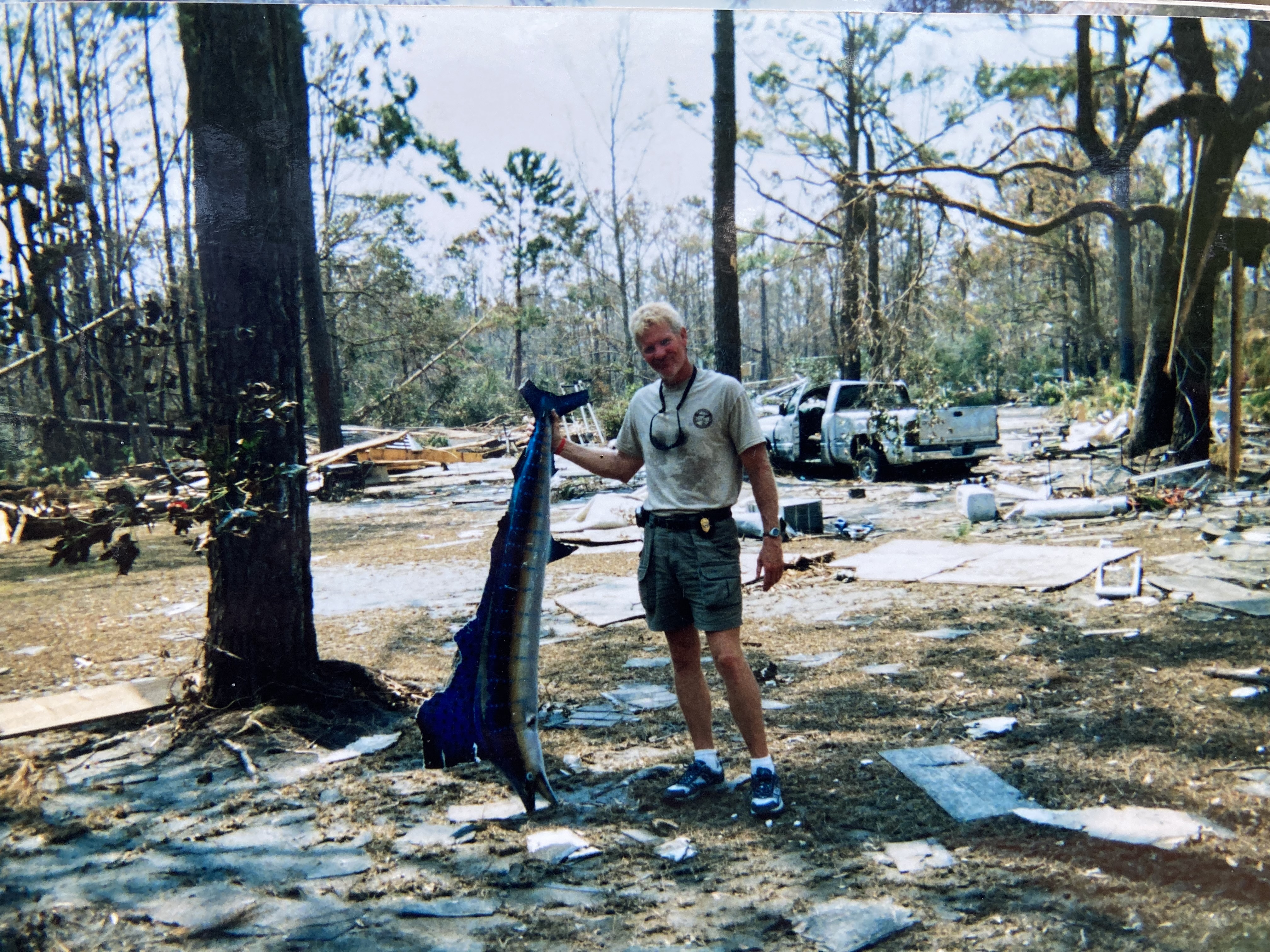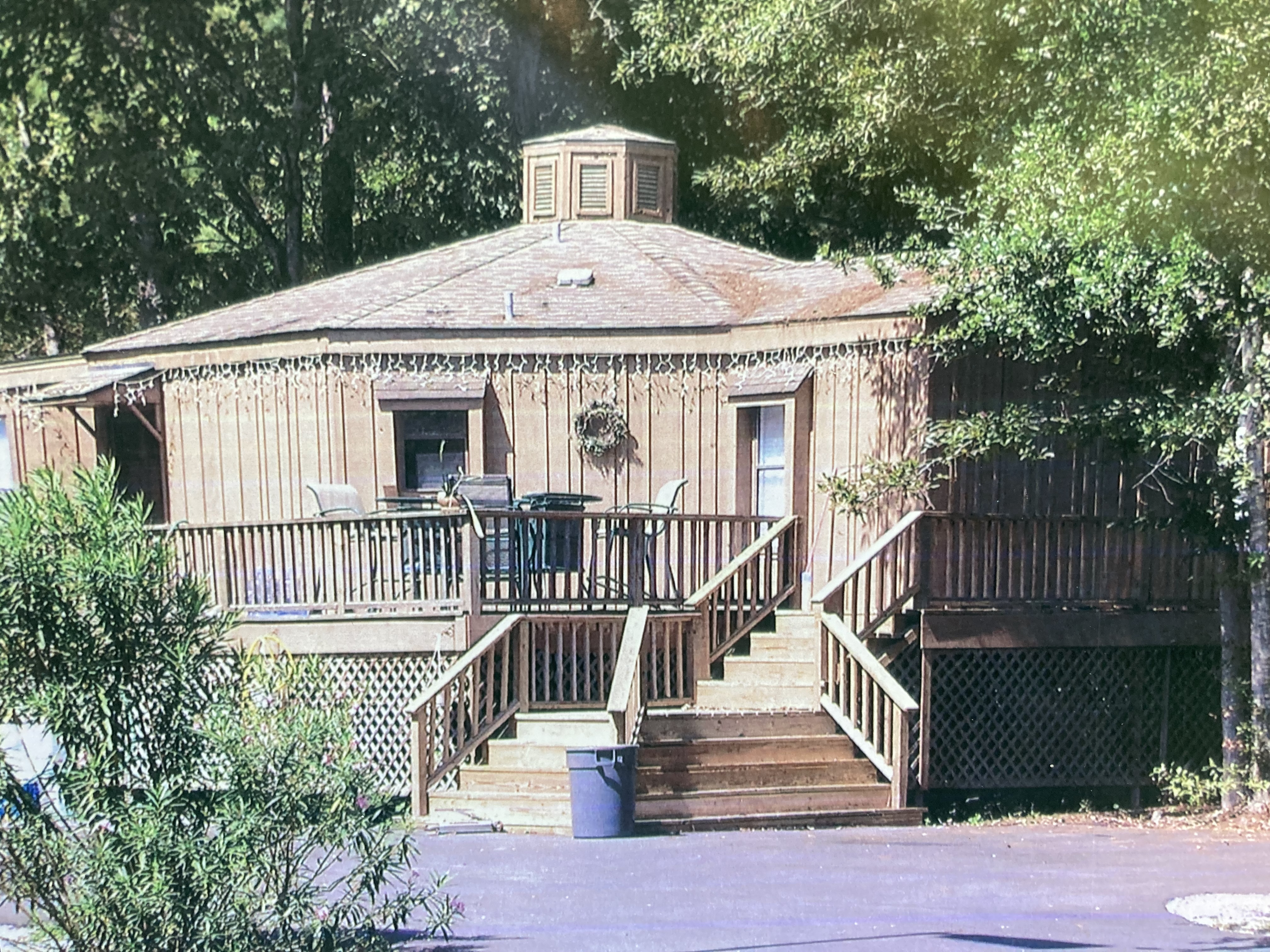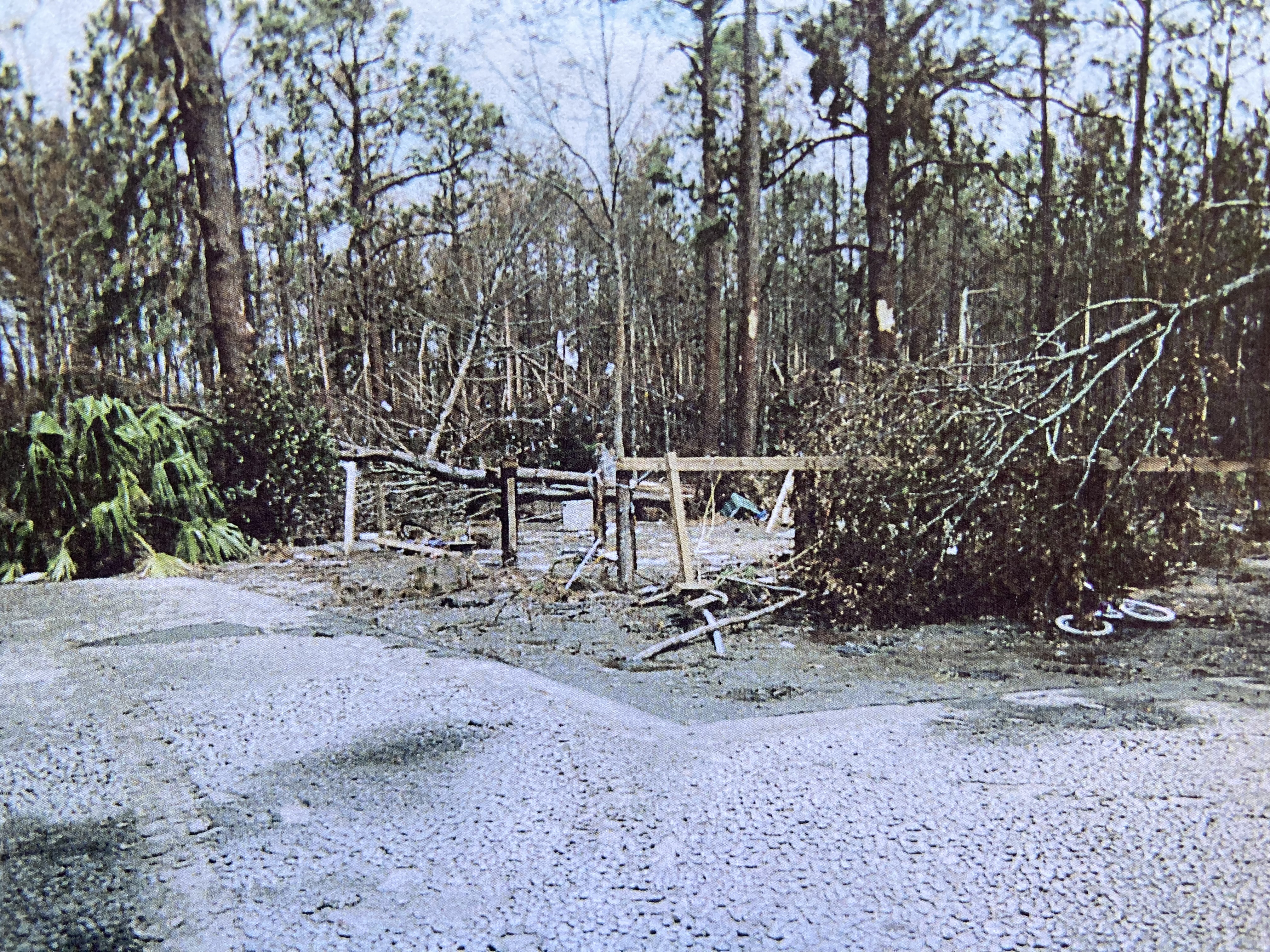
By Shay Granberry
On August 29, 2005, Hurricane Katrina struck the Gulf Coast, forever changing the lives of more than 700,000 people, including many here in Mississippi. As we mark the 20th anniversary, MDWFP honors those impacted and reflects on the role our staff played in helping communities in need.
For the first two weeks after landfall, MDWFP deployed 50 officers at a time to the devastated Mississippi Coast. Rescue missions focused on finding the injured, assisting with evacuations, and recovering survivors. Officers also partnered with Biloxi Police Department to secure Highway 90 and prevent looting.
“What I remember most was the tragedy and lives lost. Everything was unrecognizable,” said Major Glen Jackson, who was part of the special operations team during Katrina. “One of the craziest things to me was seeing Treasure Bay Casino. How the waves had pushed a whole casino on the opposite side of highway 90,” said Major Jackson.
MDWFP established a base at Lyman Fish Hatchery, which quickly became known as “Camp Katrina.” Far more than a staging site, it served as a lifeline, offering hot meals, makeshift showers, and a place for exhausted responders to recover after long, demanding days in the field.
“I think I was there four or five nights,” recalled Larry Bull of MDWFP’s Fisheries Bureau. “We prepared breakfast and evening meals, planned menus, requested supplies, and kept the mess area clean. Our day started early, coffee first of course, so the day-shift officers could eat before leaving, and then we had food ready for those coming off the night shift. We didn’t have much down time, but we knew how important it was to keep our officers going.”
“I remember the camaraderie with our officers and those from Arkansas and Alabama Game and Fish,” Bull shared. “One officer from Alabama even helped us prepare meals. It was easy to stay motivated because we were part of a team, and we knew we were supporting the officers who were out there on recovery efforts.
MDWFP partnered with The U.S. Navy, Marine Corps, and National Guard to distribute water and Meals Ready – to – Eat (MREs) while assisting with searching nearby islands. “The National Guard also assisted us with logistical needs like cots, tents, and water. They even gave us a helicopter drop one day in our camp,” said Major Byron Middleton, who was a Corporal at the time of Katrina.
Attention was also needed for stranded shrimp boats that had sought shelter in the Intracoastal Waterway. When power was lost and floodwaters rose, many boats overturned, trapping others behind them. Officers used MDWFP airboats to navigate flooded marshes where traditional boats could not reach. The Yazoo Mississippi Delta Levee District was also on call, keeping fuel flowing so missions could continue.
Located in Waveland, one of the areas affected by Hurricane Katrina, MDWFP’s Buccaneer State Park suffered complete devastation. Park Manager Stu Rayburn had called Waveland home since 1987, serving first as Assistant Manager before becoming Park Manager in 1998—a role he held until 2023. After living in Waveland for nearly two decades, he chose to ride out the storm in his home.
“I was in the water for over four hours, lucky to survive,” Rayburn recalled. “It was two days before my family knew I had made it. I can still remember the smell, the heat, and how overwhelming it was just trying to get basic necessities.”

The park’s 19 buildings, including three staff residences, were reduced to nothing but concrete slabs. “The devastation was profound. It was difficult to even recognize regular landmarks. There was destruction as far as the eye could see,” he said. Debris from miles away littered the ground. “We found my wife’s wedding dress in the top of a 30-foot tree, which was the depth of the surge at the park. A week later, we found my living room recliner about a mile away,” Rayburn remembered.


Rayburn was determined to pick up the pieces to recover and rebuild the park. The park’s re-construction came in three phases, beginning with infrastructure, 276 campsites, an office, maintenance buildings, bathhouses, and residences, which reopened in 2009. Phases II and III, including the reopening of Buccaneer Bay Waterpark, were completed in 2013. In total, it took eight years to fully restore Buccaneer State Park.
Hurricane Katrina also revealed some gaps and challenges. In 2008, MDWFP’s Special Response Team (SRT) was created to formalize and strengthen Mississippi’s ability to respond to natural disasters, especially in rural or water-impacted areas. “SRT gave us a way to leverage the unique skills and equipment of wildlife officers,” said Major Steven Westerfield, MDWFP’s SRT Commander.
Today, the SRT trains multiple times each year in a wide range of disciplines, including hurricane response, man tracking, tactical search, overland search and rescue, rope rescue, floodwater and Swiftwater rescue, executive protection, Geo referenced mapping, AVL tracking, Aerial Imagery, thermal imagery, and live and secure video streams. “These regular training exercises ensure our team remains prepared to respond effectively to any natural disaster, whether here in Mississippi or in support of other states across the region,” Westerfield explained.
The biggest impact remembered by many was how a nation of responders came together to support those in need. States including Texas, Florida, Alabama, Arkansas, New York, California, and Indiana all sent help, but there were many others. Witnessing a nation come together to support those in need remains deeply inspiring, and the MDWFP family will never forget.
“The thing I remember most from Katrina is how so many different state and federal agencies, the National Guard, and private organizations came together to help people they didn’t even know. It was pretty impressive,” said Major Byron Middleton.
Major Glen Jackson shared a similar reflection, emphasizing the teamwork that carried them through the crisis. “We all worked as a team and unit. We couldn’t have made it through without the help of the federal government, other states, and local responders,” he said.
These are just a few of the stories from our staff who lived through and responded to one of the most devastating storms in our nation’s history. As we mark the 20th anniversary of Hurricane Katrina, we honor not only the loss and destruction it left behind, but also the strength, sacrifice, and service shown by all who responded. In the face of unimaginable challenges, people came together, ready and willing to do whatever it took to help their communities rebuild and heal.